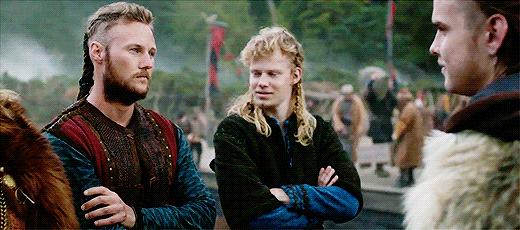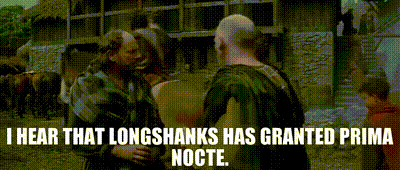The medieval period in Europe begins with the official fall of the Western Roman Empire in the year 476, at least according to most historians.
There wasn’t some magical event that flipped a switch and changed everything around from ancient to medieval, but 476 is a very convenient place to begin, since Rome was so dominant in the region for centuries. Roads, aqueducts, irrigation, laws—even the Roman way of measuring time pervaded much of the continent.
There are a lot of misconceptions out there about this time period, which ends around 1492—the year Columbus’s voyage to the early Americas connected this “new world” to the “old world” of Europe. Perhaps even more notably, at least at the time, Isabella and Ferdinand of Castille ordered all Muslims and Jews living in their land to convert to Christianity, or get out of their homeland.
Between the fall of Rome (the city, not the Empire, mind you) and 1492, the people of Europe developed a diverse range of views, and hide a wider range of cultures without any Roman influence. We often think of these people as cartoonish idiots, and we call this period the Dark Ages, but that’s a bit of a silly convention.
For one thing, contrary to popular belief, Columbus did not “prove the Earth was round” or something like that. Scholars and educated folks during the middle ages (a rough translation for medieval) understood that the planet was a sphere. This myth seems to have been propagated during the 19th century in Washington Irving’s very successful biography of Columbus, which was probably about half myth and half reality, if we’re feeling particularly generous today.
For another thing, Vikings did not wear horned helmets!
This myth has been corrected (somewhat) in recent years, as the “Vikings never wore helmets” fact becomes a meme. The TV show Vikings did a lot of the heavy lifting, showing Nordic traders and raiders with long, flowing hair and bare heads. The show is a mixture of history and fantasy based on legend, so they don’t get everything right, but the hornless helmets helped.
What started this rumor? It actually might have been opera, believe it or not. Once again, the 19th century provided us with a reimagining of the medieval past, as this iconic costume design implanted itself in the public mind. Those horns were easy to see from the balcony!
Not all medieval misinformation came from the 19th century, though. During the late 20th century, when I was employed at a movie theater, the film Braveheart was in constant rotation. I might have seen it around 10 times all the way through, and probably another ten times in bits and pieces.
Plenty of the “history” in Braveheart is trash, but I want to focus on one particularly shocking scene. After a Scottish wedding, some lord comes and takes the wife away for something called jus primae noctis, or “right of the first night” in Latin (they just say prima nocte in the film).
This is yet another horrifying injustice showcased in the film, so you really feel the plight of the Scottish struggle for independence. It works well in the film, too! There’s only one small problem: there is zero historical evidence that lords were granted this right in medieval Scotland.
Now, the oppression represented in the film is historically accurate, but the way it manifests is all kinds of wrong. Mind you, there was plenty of brutal injustice during this time, and rape and sexual assault were utterly commonplace… but the ritual shown in Braveheart has no basis in reality.
After working in the movie theater, I gradually became more and more interested in history. Debunking prevalent ideas about the middle ages became a sort of sport for me, and I really enjoyed reading about the prevailing scientific thought during the period.
I realized that people in Europe were not monolithic, and while plenty of folks believed some wild stuff about the world, there was also a great deal of scientific progress, especially in monasteries and other places where writing was kept alive and well.
The examples I’ve given here are from the medieval period, but misleading stories about the past aren’t confined to any particular era. By pointing out debunked myths about the past, we can gradually come to better understand it, and we can create a sort of immunity against future misinformation. We can be more vigilant.
Now, let me ask you: what are some of your own personal favorite ideas about the past that have been debunked?







How about the myth that medieval women were totally oppressed? They actually ran businesses, had their own money and went on long pilgrimages.
You know that myth about masturbation causing blindness? Well, I’m happy to report that I see just fine, although I do need glasses.